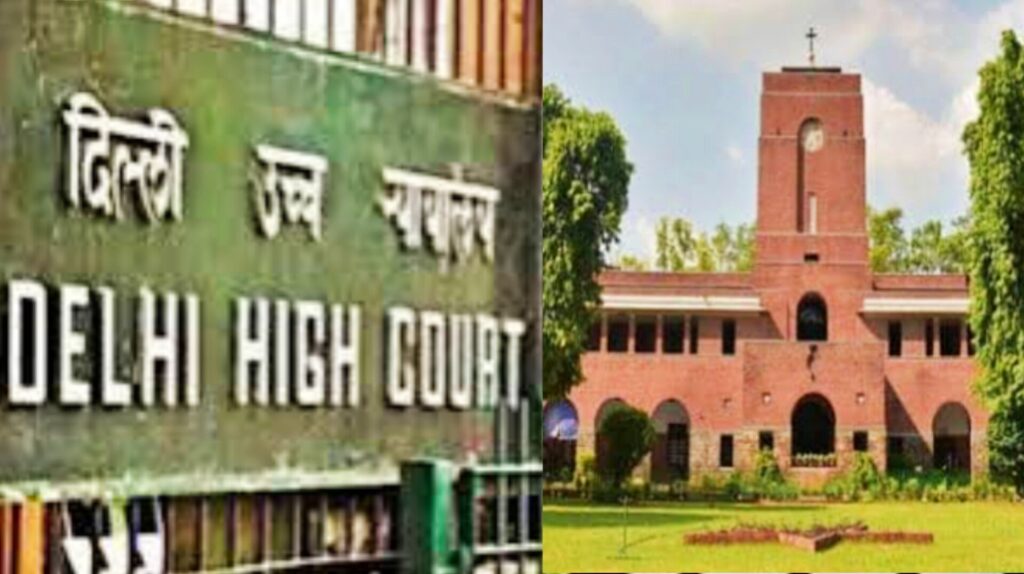Anushri Joshi
The Delhi High Court, in a stern rebuke, has summoned the Registrar and the Dean of Admissions of Delhi University in a contempt plea filed by St Stephen’s College. The venerable institution, renowned for its academic excellence, had approached the court, alleging wilful disobedience of its directives regarding the allocation of postgraduate seats for the academic year 2024-25.
The High Court, in its judgment dated April 22, 2024, unequivocally directed that the allocation of postgraduate seats in St Stephen’s College should not be disproportionate. Despite this mandate, the University allegedly failed to make proper allocations, prompting the College to file the present contempt petition. St Stephen’s College contended that the University had once again allocated an unjustly low number of seats to the institution, thereby not only defying the Court’s order but also undermining the interests of students from the minority Christian community.
The College’s submission before the Court further underscored that the list of candidates belonging to the minority Christian community, forwarded to the University for admission to various postgraduate courses, had been disregarded. This deliberate omission, according to the College, was in contravention of the Court’s explicit directions, rendering the University’s actions patently contemptuous.
Justice Dharmesh Sharma, presiding over the matter, expressed the Court’s unequivocal dismay at the University’s conduct. In his scathing remarks, the learned judge observed that the officials of Delhi University appeared to be settling personal scores with the College’s management, all at the expense of the students’ future. Such deliberate intransigence, the Court noted, was not only unconscionable but also legally untenable.
In holding the University guilty of “wilful disobedience,” the Court remarked that the delay in facilitating the admission process for students would cause irreparable harm to those selected by St Stephen’s College. The learned judge lamented the insensitivity displayed by the University officials, particularly given the high stakes involved for students aspiring to secure postgraduate education. The Court’s rebuke was pointed: “Academics of repute cannot afford to display such disregard for judicial orders, especially when the futures of students hang in the balance.”
Citing the egregious nature of the contempt, the Court directed the Registrar and Dean of Admissions of Delhi University to appear before it via video conferencing on October 15, 2024, at 2:30 p.m., to show cause why they should not be punished in accordance with the law for their disobedience. Failure to comply with this directive, the Court warned, would invite stringent legal consequences.
The case, thus, underscores the legal maxim Lex non excusat ignoratum, ignorance of the law excuses no one. The deliberate non-compliance by the University reflects not only an affront to judicial authority but also a dereliction of its duties towards its students, who rely on it for a fair and just admission process. The upcoming hearing will likely determine the extent of the legal penalties that may be imposed on the University officials for their contumacious conduct, and whether the sanctity of judicial directions will be reaffirmed in the face of such blatant disregard.

